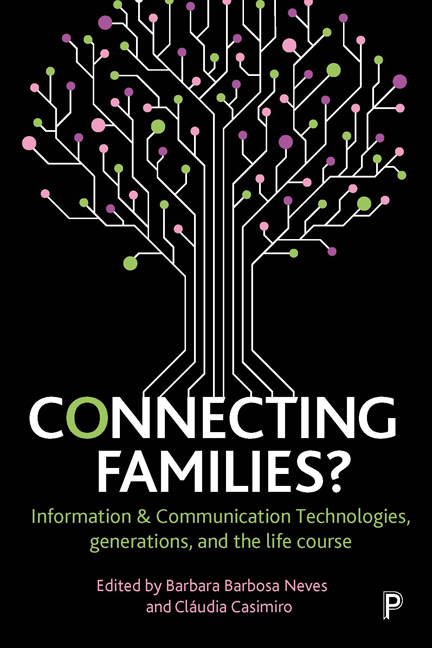Book contents
ten - Careful families and care as ‘kinwork’: an intergenerational study of families and digital media use in Melbourne, Australia
Published online by Cambridge University Press: 22 April 2022
Summary
Introduction
Jessica Chan is 19 years old and lives in the outer suburbs of Melbourne with her mother and father. She is first generation Australian, her Singaporean Chinese mother and her Malaysian Chinese father immigrated to Australia in 1989. She is baking vegetarian curry puffs, while her mother Nancy is stir-frying some chicken for their relatives who are coming over for Sunday dinner. While sharing the kitchen, they are debating whether Jessica should get the latest iPhone 7 as she is leaving for a university exchange to New York for six months, a few weeks later. The conversation is not what one would usually expect: Jessica, the teenage daughter is not asking her mother to buy her the newest iPhone. Nancy is insisting that she is going to buy it for her and she should download Facebook, Skype and WhatsApp for when she is away from home. Nancy's mother has no intention of checking up on Jessica constantly, but she does want to feel as though she is updated with what she is doing and that she can easily contact her when she wants to.
In her studies of three generations of Italian Australians, migration scholar Loretta Baldassar (2016) has observed that in the mid-twentieth century, Italians leaving home would experience a social death – that is, they would be disconnected from their family networks due to the distance of migration. In the early twenty-first century, however, leaving Italy no longer means experiencing a kind of social death, it means that the family of the person emigrating would purchase a new computer. Similarly, Jessica's exchanges, highlighting transnational forms of intimacy and intergenerational mobility, involve culturally and generationally specific forms of care in and through media practice. These practices are more than just ‘social surveillance’ (Marwick, 2012), instead illustrating the complex and paradoxical weave of power and care involved in what can be called ‘friendly’ surveillance (Hjorth et al, 2016).
This chapter empirically explores the ways in which intimacy, surveillance and care are interwoven with and through digital media practices in Melbourne.
- Type
- Chapter
- Information
- Connecting Families?Information and Communication Technologies, Generations, and the Life Course, pp. 181 - 200Publisher: Bristol University PressPrint publication year: 2018

